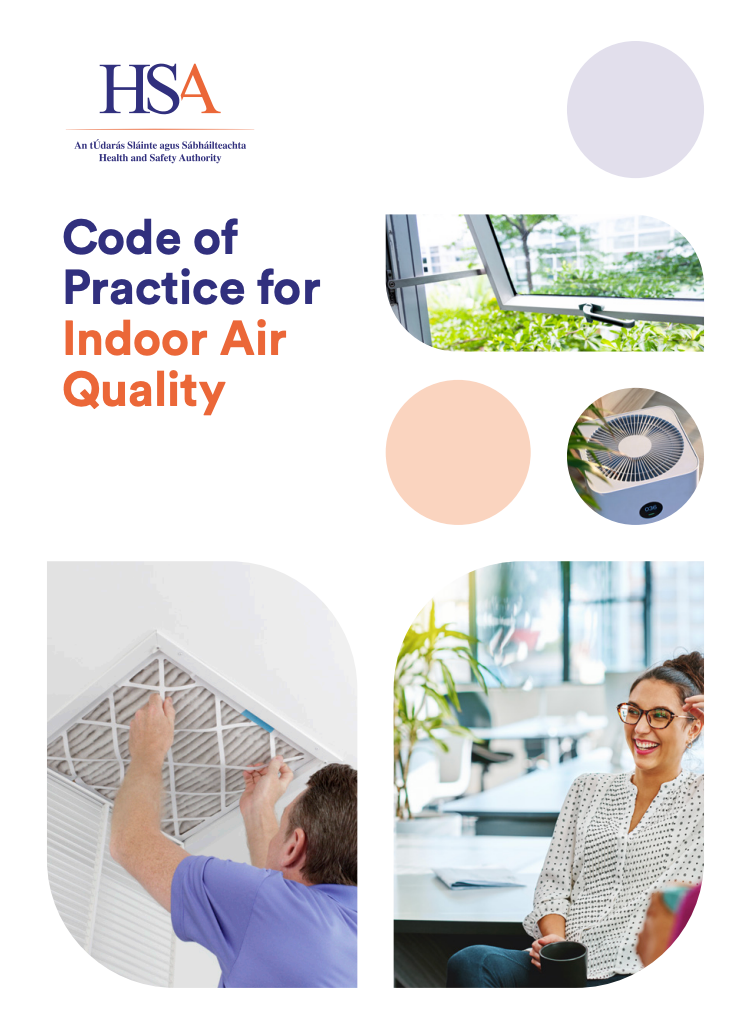Internal air quality is a serious threat leading to illness and even deaths throughout the UK. We spend a large portion of our time indoors, much of it in commercial buildings such as offices, so it is vital that these spaces are safe. Unfortunately, bad air quality is an invisible threat. It is easily overlooked, and workforces across the UK are breathing in polluted air, damaging their health without even realising it. In this guide we’ll take a look at what bad internal air quality is, your responsibilities to tackle it, and how you can improve it to protect people working in your property.
What Is Internal Air Quality?
Internal air quality (sometimes called indoor air quality) refers to the quality of air in and around buildings. It considers the levels of pollutants in the air and how they affect the comfort and health of a building’s occupants.
Air Quality Rules And Regulations
Air quality is covered by the Health & Safety at Work etc. Act 1974 and the Occupiers Liability Act 1984. Employers have a duty of care for their employees which requires them to create a safe and healthy working environment. Air quality plays a crucial role in an employee's health and safety; therefore, it is the employer’s responsibility to work to improve it.
The Approved Code of Practice which accompanies the Workplace (Health, Safety and Welfare) Regulations requires internal air quality to be equal to (or preferably better than) the air quality outside the building.
The Effects Of Poor Air Quality
Air quality can have a significant impact on our health. Bad air quality can lead to a range of negative health effects, from mild symptoms such as irritated eyes to more severe cases of chronic cardiovascular and respiratory diseases. The effects of prolonged or continual exposure to bad-quality air can be fatal. Public Health England estimates there are 28,000 to 40,000 deaths annually resulting from air pollution.
Bad air quality is not only damaging to the health of employees but to the company itself. Poor air quality has a detrimental effect on our well-being and work performance. It can lead to headaches, allergies, asthma, breathing issues, lack of concentration, and skin conditions. It can also increase the spread of viruses. These ultimately increase sick days, affect our decision making, and decrease productivity. On the other hand, fresher, cleaner, and healthier air has the opposite effect.
Should You Test Internal Air Quality?
The best starting point for improving internal air quality is an internal air quality assessment. An assessment will detail the problem and empower you to take the best possible course of action by choosing a solution tailored to your requirements. An assessment will highlight which pollutants are present in a building and in what quantities. From there an assessor can provide bespoke recommendations for your work environment to prevent more pollutants entering and to remove those which are present.
How To Improve Internal Air Quality
Once you have had an internal air quality assessment, you will have a much clearer picture of the issue in your premises. This will allow you to construct a tailored solution to address the problem in the most optimal way. Air quality, in many ways, is an invisible issue which can go overlooked and unaddressed. If we know what the problems are and which pollutants are present in our building, then we can do something about it.
There are several ways to improve air quality in a commercial property. The most effective way to improve internal air quality is through improvements to your ventilation and filtration systems. With filtration, you can add
HEPA filters and carbon filters to capture particles and UVC technology for controlling viruses, allergens and other pathogens. Without proper filtration in place, your office air conditioning systems will simply circulate pollutants throughout the building. Furthermore, ventilation systems (which are designed to replace stale indoor air with fresh outdoor air) will actually bring in heavily polluted air from outside unless proper filtration is used.
Air purifiers and infection control solutions are also great options for improving internal air quality. An air quality expert will be able to advise on which of these best meet your requirements following an internal air quality assessment.
Book An Internal Air Quality Assessment
To begin the process of improving your internal air quality, get in touch with one of our experts. We’re happy to guide you through the process and help you understand the air quality in your property. Book an air quality assessment today by calling Ultra Protect on 0800 6446605.
Learn More About Internal Air Quality
Air quality is important and it's vital that you understand it to best care for yourself and others in your building. That's why we have put together a series of guides covering many areas and topics relating to air quality. Explore our blog for more information, or start with these recommended reads:
Air Filters Vs Air Purifiers: Which Is Better?







